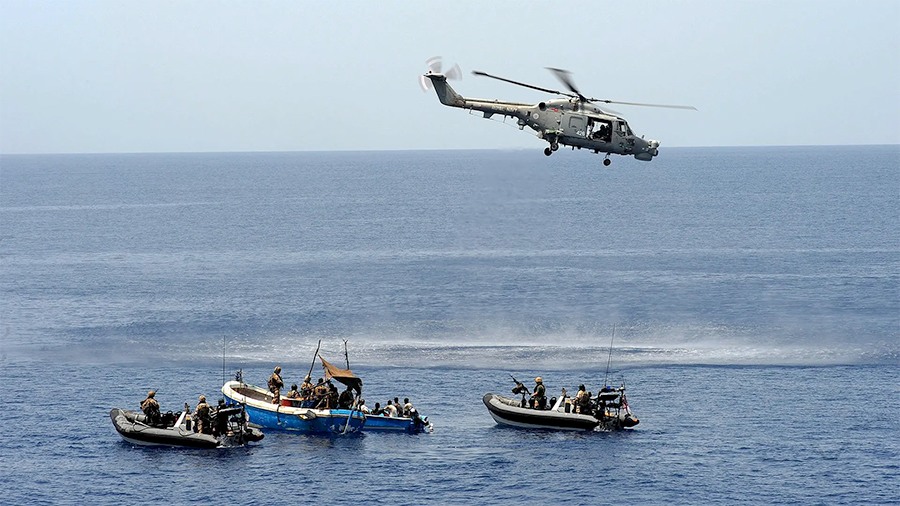Grand Challenges: Climate Change and Political Conflict
The Impact of Rising Sea Temperature on the Security of 109 Coastal Nations
Grant Type: Individual Project Grant
Topics: Climate Change and Threats to Democracy
College Represented: BSOS
Grand Challenges Project Examines the Link Between Climate Change and Political Violence
September 25, 2024
UMD Criminologist to Receive World’s Top Prize in Criminology
November 7, 2023
Climate Change Raises the Black Flag
April 27, 2023
Summary: Although comparative research on the security implications of climate change is rapidly expanding, prior research has not yet detected a single general effect but rather mounting evidence that climactic changes contribute to political conflict under some conditions and through certain pathways. In prior research, we found that sea surface temperature (SST) is a significant predictor of maritime piracy, depending on the specific ways that it impacts regional fish production. Our statistical analysis confirmed that in East Africa, higher SST is associated with declining fish production which in turn increases the likelihood of piracy; while in the South China Sea, higher SST is associated with increasing fish production that in turn decreases the risk of piracy. In the proposed research we plan to build on this study by using SST as a measure of climate change and examine its impact on various types of political violence in 109 countries with coastlines. We will measure political violence by analyzing geocoded events recorded for the past 30 years in databases on terrorism (GTD) and Armed Conflict (ACLED). If we can demonstrate a significant link between SST and political violence, we will be able to better understand past violence but also provide projections of the nature of future threats connected to the effects of shifts in food production, one the major results of climate change.
Although comparative research on the security implications of climate change is rapidly expanding, prior research has not yet detected a single general effect but rather mounting evidence that climactic changes contribute to political conflict under some conditions and through certain pathways. In prior research, we found that sea surface temperature (SST) is a significant predictor of maritime piracy, depending on the specific ways that it impacts regional fish production. Our statistical analysis confirmed that in East Africa, higher SST is associated with declining fish production which in turn increases the likelihood of piracy; while in the South China Sea, higher SST is associated with increasing fish production that in turn decreases the risk of piracy. In the proposed research we plan to build on this study by using SST as a measure of climate change and examine its impact on various types of political violence in 109 countries with coastlines. We will measure political violence by analyzing geocoded events recorded for the past 30 years in databases on terrorism (GTD) and Armed Conflict (ACLED). If we can demonstrate a significant link between SST and political violence, we will be able to better understand past violence but also provide projections of the nature of future threats connected to the effects of shifts in food production, one the major results of climate change.

PI: Gary LaFree (BSOS),
Distinguished University Professor, Criminology
and Criminal Justice

